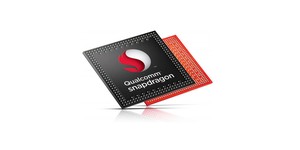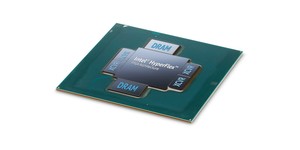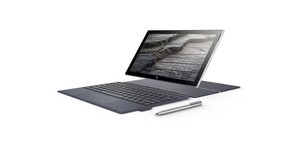Qualcomm, Microsoft announce Windows 10 on ARM
December 8, 2016 | 09:59
Companies: #arm #microsoft #qualcomm

Microsoft has announced a partnership with Qualcomm to bring Windows 10 - real Windows 10, not the aborted cut-down version formerly known as Windows RT - to the company's ARM processors.
Microsoft's previous attempts at playing with non-x86/AMD64 platforms have not exactly set the world aflame. The company has long offered an embedded Windows release which supports ARM and other non-x86/AMD64 architectures, and recently made that available to a wider audience under the moniker Windows 10 IoT Core. Although Windows 10 IoT Core does indeed run on ARM-based devices, in particular the popular Raspberry Pi single-board computer, it's not Windows as most users would know it; instead it's a cut-down operating system designed to run a single application at a time, and built with the intention of winning over embedded developers from Linux and other non-Windows kernels to the Windows ecosystem.
The closest Microsoft has ever come to a true release of a consumer-centric Windows version on ARM was Windows RT, launched alongside Windows 8 on Microsoft's Surface family of tablets. While one or two hardware partners licensed Windows RT, it was soon abandoned by both third parties and Microsoft itself: Microsoft confirmed in 2015 that Windows RT would not be updated to a Windows 10-based version, and sank the final nail into its coffin a few months later by leaving Windows RT out of its so-called 'Universal' Windows Platform.
Now, though, Microsoft is having another crack of the whip, and it's convinced Qualcomm to come along for the ride. Devices built around Qualcomm's latest Snapdragon processors will, the companies have jointly announced, be able to run Windows 10 - and this time it's truly the same release of Windows you'd find on an x86/AMD64 device. Not only will it run Windows 10, mind you, but also Windows 10's considerable ecosystem of applications - including those compiled exclusively for Win32 under the x86 architecture and the Universal Windows Platform.
'To deliver on our customers' growing needs to create on the go, we announced today that Windows 10 is coming to ARM through our partnership with Qualcomm,' explained Microsoft's Terry Myerson in a blog post late last night. 'For the first time ever, our customers will be able to experience the Windows they know with all the apps, peripherals, and enterprise capabilities they require, on a truly mobile, power efficient, always-connected cellular PC.'
Technical details of how the system will work have not yet been released, but the secret lies in emulation: a translation engine will take the x86/AMD64 instructions from the operating system and the software it's hosting and translate them into ARM instructions for the host processor. It's a tried-and-tested approach which gave machines like the Acorn Archimedes and Commodore Amiga basic x86 support in the 1980s and 1990s, though one which typically comes with a considerable performance hit - something for which Qualcomm's latest chips, it is to be hoped, can compensate.
A video demonstrating Windows 10 and Adobe Photoshop running on an ARM-based device is reproduced below, with Qualcomm and Microsoft promising to launch the first units some time next year.
Microsoft's previous attempts at playing with non-x86/AMD64 platforms have not exactly set the world aflame. The company has long offered an embedded Windows release which supports ARM and other non-x86/AMD64 architectures, and recently made that available to a wider audience under the moniker Windows 10 IoT Core. Although Windows 10 IoT Core does indeed run on ARM-based devices, in particular the popular Raspberry Pi single-board computer, it's not Windows as most users would know it; instead it's a cut-down operating system designed to run a single application at a time, and built with the intention of winning over embedded developers from Linux and other non-Windows kernels to the Windows ecosystem.
The closest Microsoft has ever come to a true release of a consumer-centric Windows version on ARM was Windows RT, launched alongside Windows 8 on Microsoft's Surface family of tablets. While one or two hardware partners licensed Windows RT, it was soon abandoned by both third parties and Microsoft itself: Microsoft confirmed in 2015 that Windows RT would not be updated to a Windows 10-based version, and sank the final nail into its coffin a few months later by leaving Windows RT out of its so-called 'Universal' Windows Platform.
Now, though, Microsoft is having another crack of the whip, and it's convinced Qualcomm to come along for the ride. Devices built around Qualcomm's latest Snapdragon processors will, the companies have jointly announced, be able to run Windows 10 - and this time it's truly the same release of Windows you'd find on an x86/AMD64 device. Not only will it run Windows 10, mind you, but also Windows 10's considerable ecosystem of applications - including those compiled exclusively for Win32 under the x86 architecture and the Universal Windows Platform.
'To deliver on our customers' growing needs to create on the go, we announced today that Windows 10 is coming to ARM through our partnership with Qualcomm,' explained Microsoft's Terry Myerson in a blog post late last night. 'For the first time ever, our customers will be able to experience the Windows they know with all the apps, peripherals, and enterprise capabilities they require, on a truly mobile, power efficient, always-connected cellular PC.'
Technical details of how the system will work have not yet been released, but the secret lies in emulation: a translation engine will take the x86/AMD64 instructions from the operating system and the software it's hosting and translate them into ARM instructions for the host processor. It's a tried-and-tested approach which gave machines like the Acorn Archimedes and Commodore Amiga basic x86 support in the 1980s and 1990s, though one which typically comes with a considerable performance hit - something for which Qualcomm's latest chips, it is to be hoped, can compensate.
A video demonstrating Windows 10 and Adobe Photoshop running on an ARM-based device is reproduced below, with Qualcomm and Microsoft promising to launch the first units some time next year.

MSI MPG Velox 100R Chassis Review
October 14 2021 | 15:04








Want to comment? Please log in.